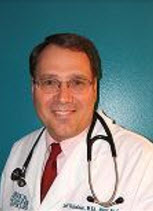 IF YOU HAVE ANY HEALTH CARE RELATED EXPERT NEEDS, WE CAN ASSIST YOU PROMPTLY AND AT REASONABLE RATES. The PHYSICIAN ASSISTANT EXPERTS NETWORK is now also offering physician and nurse experts in addition to Physician Assistants(PAs), Advanced Practice Nurses (NPs), CRNA’s and Allied Health Providers. . We have some of the most respected clinicians in the country affiliated with top notch medical schools and hospitals. CLICK HERE FOR A LIST OF PHYSICIAN AND PA/NP EXPERT SPECIALTIES AVAILABLE
IF YOU HAVE ANY HEALTH CARE RELATED EXPERT NEEDS, WE CAN ASSIST YOU PROMPTLY AND AT REASONABLE RATES. The PHYSICIAN ASSISTANT EXPERTS NETWORK is now also offering physician and nurse experts in addition to Physician Assistants(PAs), Advanced Practice Nurses (NPs), CRNA’s and Allied Health Providers. . We have some of the most respected clinicians in the country affiliated with top notch medical schools and hospitals. CLICK HERE FOR A LIST OF PHYSICIAN AND PA/NP EXPERT SPECIALTIES AVAILABLE
The PA EXPERTS NETWORK NOW ALSO PROVIDES INITIAL MEDICAL CHART REVIEW FOR MERIT, MEDICAL CARE CHRONOLOGIES, CHART ORGANIZATION AND CASE SUMMARIES. Spanish speaking staff also avalable to assist with client interviews by phone, zoom or skype.
The PA Experts Network was founded by Jeffrey G. Nicholson, PA-C, Ph.D., M.Ed., MPAS, an experienced medico-legal consultant himself and a recognized leader in the PA profession. If you are seeking the best, most professional and most experienced experts, or initial records review, contact him today. (414) 517-6915 or email Jeff.G.Nicholson@gmail.com Please click on the service options below for more detail of services provided.
The Founder’s Credentials Include:

- Former PA Program Director at the University of Wisconsin-Madison Medical School and Associate Professor at the University of Texas – Southwestern PA Program
- 28 years of continuous clinical employment in family practice, emergency medicine, internal medicine, urgent care, occupational medicine; Board certified, licensed, clinically practicing
- National speaker and consultant on PA scope of practice, education, regulations, risk management and malpractice
- 12 years of full time PA program teaching and administration experience and 25 years PA student clinical teaching experience, Current Adjunct Clinical Faculty at 4 PA Programs
- Distinguished Fellow, American Academy of Physician Assistants
- Degrees from Harvard University, Boston College, University of Wisconsin
- Two-time President and 15 years Board of Directors of the Wisconsin Academy of Physicians Assistants
- Six-time representative to the American Academy of Physician Assistants House of Delegates
- President of the American Academy of PAs in Legal Medicine (AAPALM)
- Owner and Manager of Physician Associates Low Cost Family Practice and Urgent Care Clinic
- Committee member and Consultant to the American Academy of Physician Assistants
CLICK HERE TO SEE OR DOWNLOAD DR. NICHOLSON’S CV
The Physician Assistant PA Expert Witness & Medical-legal Consultant:
A Guide for Attorneys & Experts
by Jeffrey G. Nicholson, PhD, PA-C
Although formal additional training is not required, some PA expert witnesses have completed seminars conducted by and for legal nurse consultants. Frequently, PA expert witnesses are faculty or former faculty at physician assistant training programs. The majority of PA experts get into the practice of providing opinions on malpractice cases because they are asked, not because they set out to become expert witnesses.
PAs may also be qualified to opine on the standard of care of advanced practice nurses also known as nurse practitioners (NPs) or advanced practice nurse prescribers (APNPs). PAs and nurse practitioners are often referred to as “mid-level” providers of medical care because their education and training lies somewhere between the nurse and the physician. PAs and NPs often compete for the same jobs and each is required by state regulations to either be supervised or collaborate with physicians in the ordinary discharge of their duties. Additionally, there are several training programs that offer graduates the ability to sit for either the PA national certification exam or one of the advanced practice nursing certification exams. In these programs the curriculum is identical.
In order to maintain the certification designation, the “C” in PA-C, PAs must complete 100 hours of continuing medical education every two years and receive a passing score on a national comprehensive exam (similar to the initial certification exam) every ten years.
As mentioned, although physician assistants by definition and scope of practice, must provide medical care under the general supervision of physicians, they may practice autonomously and at remote distances or offices from their supervising physicians. Even so, most states consider physicians as sharing in the responsibility and liability of their supervised PA’s clinical decisions and actions. On this matter, legal case precedent differs from state to state, and the liability or level of responsibility of the supervising physician for a PA’s clinical care and judgment is not well defined and is continually reinterpreted in the courts.
While the role of PA and physician is similar, each may have a separate scope of practice defined by training, credential and personal experience. If a PA infers substandard care by a physician in a deposition, trial attorneys are quick to point out that PAs are not physicians and do not have the full length or breadth of physician training. However, it may be quite appropriate for PAs to comment on the standard of care of physicians depending upon the circumstance. The standard of care for the evaluation and treatment of minor medical illness may be exactly the same for a PA and a physician. For example, the evaluation and treatment of a sinus infection may be the same for a PA and a family medicine physician, but it may differ between the PA or family medicine physician and an otolaryngologist specialist. Physicians are typically and more frequently disallowed from providing testimony on the standard of care of physician assistants, but they may comment on the physician supervisory role and state supervisory requirements. Most states now require PA expert witness testimony in malpractices cases where physician assistants are involved. A generalist or primary care PA may comment on the standard of care of another PA in any medical specialty if the care involves the basic and general medical knowledge that all PAs are reasonably expected to possess. Nevertheless, it may, in some instances, be prudent to choose a PA expert witness who has current practice experience in the medical specialty of the PA involved in the civil action. Attorneys often must choose between utilizing a generalist PA who has seasoned testifying experience or a novice PA expert who practices in a specialty.
malpractice payment reports per 1,000 physicians, 1.4 to 2.4 per 1,000 PAs, and 1.1 to 1.4 per 1,000 NPs. Physician median payments ranged from 1.3 to 2.3 times higher than PAs or NPs. The overall safety of PA practice is well established. See Physician Assistant and Nurse Practitioner Malpractice Trends, Medical Care Research and Review, Published June 13, 2016, pp. 1-12. The article may be downloaded HERE. The American Academy of Physician Assistants (AAPA), the national professional association of PAs (www.aapa.org), has recognized the PA expert witness and has adopted ethical guidelines on the use of PAs as expert witnesses in malpractice cases.
If you are a licensed and certified PA with or without medical records review experience and would like to learn more about joining the PA Experts Network, please contact Dr. Nicholson. Knowledgeable and articulate PAs are needed and welcome to join the network for referrals. There is no cost to you. Assistance and advisement will be provided to you as needed whether you have reviewed many cases or are being asked to review your first one. If chosen for a case, you will be asked to complete an application and provide a CV outlining any prior litigation experience. You are also encouraged to join the American Academy of PAs in Legal Medicine (AAPALM), a special interest group of the AAPA. www.aapalm.org. Please see the AAPALM website and join AAPALM for answers to your questions about expert witness work.




